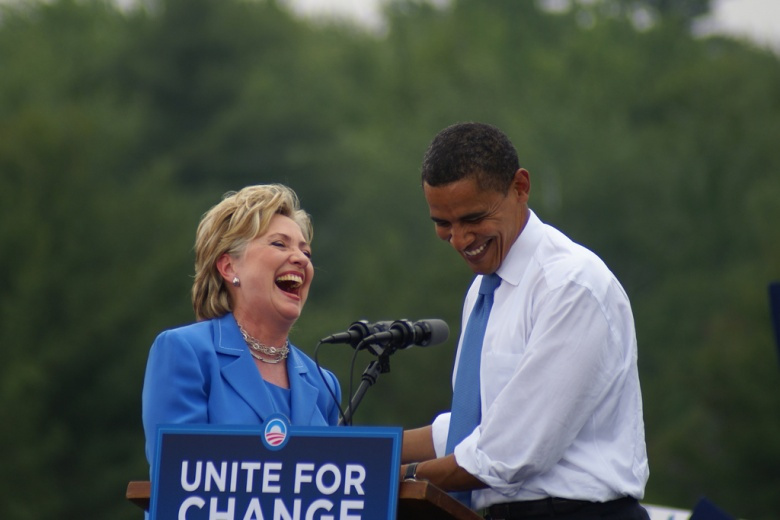
In a major speech a few days ago, Democratic presidential front-runner Hillary Clinton laid out the likely parameters of her foreign policy argument for 2016. Decrying what she calls the “cowboy diplomacy” and “reckless warmongering” of Republicans, she advocates “progress” and “fresh thinking” against the GOP’s supposedly “out-of-date” and “partisan ideas,” where “ideology trumps evidence” on international as well as domestic issues.
Clinton’s most fervent supporters claim with great confidence that foreign policy will strongly favor Hillary against any conceivable Republican in November 2016. But they may be whistling past the graveyard. The reason can be summed up in two words: retrospective voting.
Retrospective voting refers to the fact that in presidential elections, American voters cast a judgment on the domestic and international policy record of the past four years, whether or not the incumbent president is on the ballot. Depending upon the popularity of an outgoing president, this can either help or hurt the nominee from the same party. So, for example, retrospective voting helped George H.W. Bush following Ronald Reagan in 1988; hurt John McCain following George W. Bush in 2008; and was more or less a wash for Al Gore following Bill Clinton in 2000. Of course, retrospective voting is hardly the only factor determining presidential elections. But it is powerful, and very real.
Barack Obama, to put it mildly, is no Ronald Reagan. In fact the current president’s popularity is not even comparable to Bill Clinton’s. And on foreign policy in particular, Obama’s approval ratings have been on average 38 percent or 39 percent for the past two years—which is where they stand today. To put this into perspective, that’s about the same foreign policy approval rating George W. Bush had at this point in his presidency. Of course, both Hillary Clinton and Obama would love to change the subject back again to George W. Bush next year. The only problem is we’ve had this other president, Obama, for several years now, and voters will probably want to reflect on how he’s done. For Hillary, this is a negative.
Ideology trumps evidence
Why do so many Americans disapprove of Obama’s foreign policy these days? Perhaps they increasingly see, to use a phrase of Hillary’s, that he has followed a foreign and national security policy where “ideology trumps evidence.”




